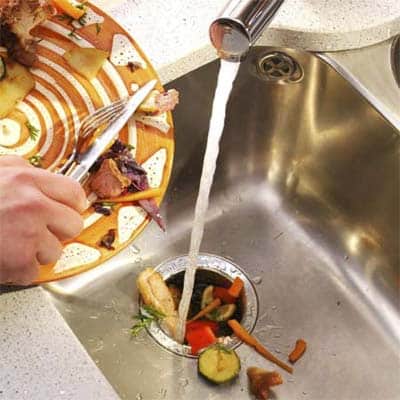Drains get clogged when there is soap scum, hair, oil in it. Clogged drains are common with used drains so you have to expect it. You might not just know when.
However, there are different DIY methods that have been developed to unclog drains rather than contacting a plumber. Some of these ways work for kitchen sinks and bathtubs while others work for toilets. One of these methods is the use of bleach.
Can Bleach Unclog Drains?
Bleach is a chemical that is made up of sodium hypochlorite basically used for, removing colors in clothes, removing stains, and killing germs. Bleach is powerful because it removes stains from the toilet, bathtub, and sinks.
Because of the initial reason for the production of bleach, many people say that bleach doesn’t unclog drains as it has been practiced and it yielded no results.
But bleach can unclog drains but not all the drains in your house. There are some clogged drains that need the attention of your plumber.
Bleach can be used especially to unclog the bathroom sink drains. Many have claimed that bleach will dissolve the hair stuck in the drain because the hair is acidic while the bleach is a base. Bleach doesn’t unclog drains most time.
Using bleach to unclog drains is the same as pouring water down the drain.
How to Unclog Drain With Bleach?
Bleach is a toxic chemical so you have to be careful when using it to unclog drains. Wear eyes protection when pouring the bleach down the drain. Pour the bleach into a cup to avoid splashing on your skin.
Then pour it into the sink. Let it wait for 5 minutes before you flush with hot water. Wait till the water moves freely. If the drain doesn’t unclog the first time, you can try it again.
Is It Safe to Use Bleach to Unclog a Drain?
It is safe to use bleach to unclog drains because many people use it to wash toilets, sinks, and even clothes to make them whiter. But you have to be careful when using it to unclog a drain.
Wear eye protection so that even though it splashes, your eyes will be protected. If it splashes in your eyes, rinse it with water and visit the doctor immediately.
Be careful it doesn’t splash on your skin. Bleach on the skin if not attended to will cause the skin to be susceptible to burning.
There must be ventilation if you want to use the bleach to unclog a drain. It has a bad effect on the lungs when it is inhaled often.
Using bleach to unclog kitchen sinks can be very dangerous as your foodstuffs are kept there and the bleach can contaminate them.
Pros of Unclogging Drains With Bleach
1. Clean Sinks and Bathtubs
Even though your main aim is to unclog the drains, using bleach will bring about cleanliness to the drain. Not only will it be clean, but it will kill germs also. It will make your sinks and toilets whiter and cleaner.
2. Clear Drains
Even though it might not happen instantly, bleach might unclog drains if it’s not a full one but little partial clogs. But for serious clogging, you might have to go for something else like using vinegar to unclog the drain or just contact your plumber.
3. Saves Money
Bleach is a common cleaning agent found in homes because of the cleaning agent it is. Using it to unclog drains means you are saving your money. It’s not something you are thinking of buying (except you don’t have any yet). And even if you want to buy it, it is not something very expensive.
Cons of Unclogging Drains With Bleach
1. It’s Not Good For Toilets
The chemical composition of bleach is corrosive so it can affect the PVC pipe of the toilet. Also because of the trap system in toilets, bleach can’t unclog the drains in toilets. Leaving the bleach for a long time can also cause damage to the toilet.
2. Food Poisoning
When it comes to the kitchen, we need to be very careful because of the foodstuffs you keep in there and because you also cook your food there. Leaving bleach in the kitchen sink for long isn’t good at all. Your food can be poisoned. It’s better you don’t use it for your kitchen sink.
3. It Doesn’t Clear Drains
Using bleach to unclog drains might not be as effective as other things like even a plunger. Knowing the cause of the clogged drain will make it easier for you. Instead of wasting the bleach in your home, you can just contact a plumber.
4. It’s Not Safe
Bleach is toxic in itself so pouring it down the drain can be risky. If it mixes with other substances in the drains like vinegar, it will cause certain chemical reactions that will be harmful to your health. So you have to be sure of the cause of the clog before you use bleach. You can opt for a better way so as to protect yourself.
5. More Clog in The Drain
If you pour much bleach into the drain, it will mix up with other substances in it thereby causing the drain to become clogged more. This will now push you to contact a plumber since you’ve clogged the drain.
6. It Damages the Drains
Pouring bleach down the drain often can damage your drains especially if it’s stainless steel. This kind of drain is common with the old houses, not the modern ones. So check the drains you have in your house before making use of bleach.
Is It Ok to Pour Bleach Down the Shower Drain?
It’s not okay to pour bleach down the shower drain. Bleach itself is toxic so too much of it will damage the drain or even mix up with other substances and clog the drain the more. It’s also not safe as it can splash on you.
How Much Bleach Should I Pour Down My Drain?
It depends on what you want to do with the bleach. You might decide to disinfect your drains or just remove stains from the sink or toilet bowl. To do any of these, dilute the bleach with water in a ratio of 1:2 or 1:4.
The diluted bleach works better than the bleach alone and it’s very safe to use. You can use a minimal amount of bleach but when it’s too much, it’s dangerous to your drain.
It is even wrong to leave it in the drain higher than 45 minutes. Whatever will be done by the bleach should be done during that time frame.
Also to even disinfect your drains and sinks, you should only use bleach once a month. No matter how often you feel you should disinfect weekly, bleaches are toxic enough to disinfect once until the next time.
Conclusion
Bleach is a common substance in homes because it is used to disinfect and make clothes whiter. But then, you have to know how and when to use bleach for your drains if you want to try it based on the information you got. Don’t use bleach on your kitchen sink if it’s stainless steel and also because it’s dangerous since the kitchen is the room you prepare your food. Instead of using bleach, you can look for another way to go about it or just contact your plumber to avoid further damage.





